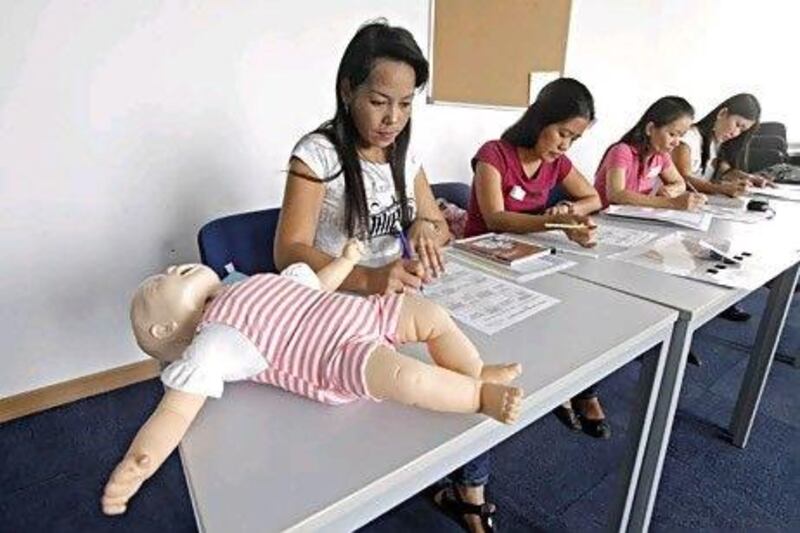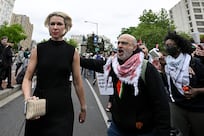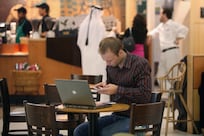Like many mothers, Tracy Fountain wanted to return to work after the birth of her children.
However, she also wished to make sure the nanny she left her little ones with would know what to do in the event of an accident or emergency at home. So Ms Fountain set about finding a paediatric first-aid training course she and the nanny could complete together to ensure they were both up to speed on injury prevention.
But all she could find, at the time, was a programme designed for companies.
"We both went on it, and even though we have a great relationship, her being on the course with her employer wasn't a great environment for her to develop confidence," says Ms Fountain.
So she decided to leave her leadership training position and set up Back to Basics as a teaching enterprise to coach parents and nannies in child injury prevention. She conducted research during the next couple of years, hooking up with paediatricians and other experts in the field.
"I felt if we took best international practice and created a programme that was relevant to this region, considered cultural factors and language factors, it would start to generate awareness," says Ms Fountain.
Her Back to Basics courses are delivered in English, Arabic and Tagalog, which is spoken by about a third of the population in the Philippines, because the majority of the housemaids in the UAE speak one of the three, says Ms Fountain. "But we also had to consider where we could get great instructors," she adds. "All our instructors have to have a strong medical background or be paramedics. It's been impossible to find instructors from other regions."
To get around the problem, Indonesian or Sri Lankan housemaids receive written course material in their first language, while everyone else is given a booklet in English, Arabic or Tagalog.
Across the country, 83 per cent of child deaths are preventable, according to data from the Ministry of Health. Statistics show that while 65 per cent of child deaths are traffic related, nearly a quarter are caused within the home due to drowning, falls and fires.
Last year, Mafraq Hospital in Abu Dhabi launched a children's injury prevention programme in response.
It was Ms Fountain's passion to improve child injury prevention in the Emirates that helped her succeed in a recent competition for social entrepreneurs, according to organisers.
The initiative was created by Dubai+Acumen, which is a partner of the not-for-profit venture capital organisation Acumen Fund. Buksha, an Emirati-owned sustainable rural tourism enterprise, was also a winner.
The ideas submitted for this competition were closely studied to ensure they were truly social enterprises, innovative and had a positive effect on the social issues they aimed to tackle.
The other three criteria included impact, sustainability and scalability, says the Dubai+Acumen chapter leader Noor Al Jallaf. Based on these factors, Back to Basics and Buksha received the highest scores, Ms Al Jallaf says.
To more broadly help prevent child injuries in the Emirates, parents are also encouraged to take the Back to Basics course. But they are not allowed to accompany their employees.
"We don't allow that because when [housemaids] are with their own peers [they] get a lot more confidence," says Ms Fountain.
"We get them into the position where they are really comfortable in saying if they don't know and they can make mistakes," she adds.
The first session was delivered in November, and the company has since trained some 600 parents and housemaids.
"These are generally safety-conscious people who have sought us out but our main challenge now is we want this to become available to all income levels," says Ms Fountain.
The company is talking to government departments in Abu Dhabi to see how it can develop community programmes for all new and next generation parents. And it has partnered with the Palestine Children's Relief Fund to ensure families in the Emirates who look after youngsters here for treatment or operations are properly trained in injury prevention.
twitter: Follow our breaking business news and retweet to your followers. Follow us






